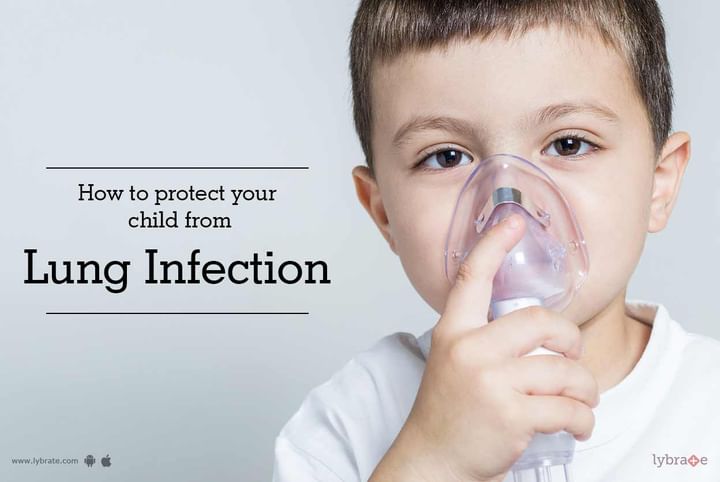Get the App
For Doctors
Login/Sign-up
Last Updated: Oct 23, 2019
BookMark
Report
How to Protect Your Child From Lung Infection
Dr. Amit ChitaliyaPediatrician • 23 Years Exp.Fellowship In PCCM, Fellow-Pediatric Flexible Bronchoscopy, Fellowship In Pediatric Cardiac Critical Care, D.C.H., M.B.B.S
Children are found to be more prone to falling sick than adults. This is not only due to their lower immunity, but also the carelessness of the elders around. Since it is not expected of children to take precautions, it is up to the parents to take care of that. The following is a list of ways to protect your child from one of the most common kinds of illness encountered by children lung infection.
- Avoiding smoking in front of children: It is a well established fact that passive smoking or being in proximity to a smoker is almost as harmful as smoking itself. Parents who smoke in the presence of their children are putting the latter at the risk of lung infections and various serious lung conditions. Thus, children should be kept away from tobacco smoke as much as possible.
- Limited use of mosquito repellents near children: Mosquito repellents have been known to cause asthmatic attacks in small children. The liquidators and the mosquito coils contain chemicals which should not be inhaled, especially by children.
- Avoiding air pollution: Air pollution causes irreparable damage to the lungs of children. Harmful gases and smoke from vehicles can lead to asthma, or even lung cancer, in children. To avoid this as much as possible, children should be made to wear pollution masks, especially while travelling through busy streets with heavy traffic.
- Avoiding objects which can cause allergic reactions or act as triggers: The triggers vary from one child to another and for some, there might not be any trigger at all. However, it is the responsibility of the parents to keep the children away from things, which might cause allergic reactions. Examples of such objects are, certain fabrics, fur of animals, incense sticks, perfumes, talcum powder, citrus food, peanut, pollen, flowers, dust, fumes and so on.
- Teaching them personal hygiene: Teaching children to carry handkerchiefs, cover their mouths while coughing or sneezing, washing their hands properly, and other good hygiene habits, can combat lung infections to a great extent, as these help prevent the spread of germs.
- Timely vaccinations: Proper vaccination acts as a precautionary measure for lung infections in children. Thus, parents should get their children vaccinated after consulting the respective physician.



+1.svg)
